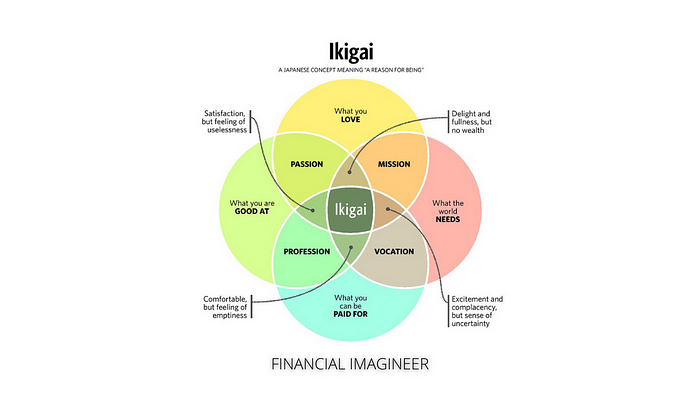Thinking back to the beginning of the Covid-19 pandemic in March 2020 most of us look at this highly volatile period and review how our investments have performed. I know for a fact some of my readers have performed extraordinarily. In times of crisis, there’s always opportunity as well.
How did you perform?
How do you feel about it?
Usually, whenever you review your progress it’s also the best time to adjust your path forward. For most, this means to eventually rebalance your portfolios, but it should also include checking-in and understanding how your current situation and path will help you crush your mid to long term goals!
It’s mid 2021 and still, Covid-19 keeps us busy. From Brexit, to Covid, new QE, US presidential elections, vaccinations to new virus variants, all things that usually feed volatility — have come one after another.
Volatility is simply a reflection of human emotions, mainly Fear and Greed.
Understanding human emotions and how they impact our behavior, it might not be a surprise to understand times of increased uncertainty do result in more investors looking for financial advisors or coaches to help them navigate through tough times and to stay the course.
Where do you think the largest value addition of working with a good financial advisor comes from?
You might be surprised to learn that it’s not necessarily from “attempting to time the market” or “selecting the right investment instruments”. These are for sure also part of the job, but they are of secondary priority at best. Real wealth managers, financial planners or coaches can help with understanding your background, your goals and what approach will work best for you first. In a second step they then bring the necessary structured approach and discipline and prevent clients from taking undisciplined or emotional short-term decisions.
That’s how having a wealth manager or coach can help you become better.
It’s no surprise that times of elevated uncertainty are also the trigger for most investment mistakes.
Like a personal health or fitness coach, a financial adviser must be able to understand and guide you accordingly. He must be using his understanding, experience and full toolset to help you avoid making mistakes that could impair your returns and put your ability to achieve your long-term objectives at risk.
So here are eight reasons you should consider engaging a financial advisor or coach yourself:
1. You are a Normal Human Being with Emotions
Some people get their endorphins boosted when markets climb higher, and their reptilian brains triggered when markets are dropping fast.
I fully believe a good advisor must act like a behavioral coach and takes his responsibility to act as emotional circuit braker seriously.
The main goal is to keep a very disciplined approach to investing no matter what.
The focus should remain the same: Hitting your mid to long term goals.
Investing is not gambling.

2. You keep close track of Financial News Daily
The financial media is not here to make you richer!
They are here to grab your attention.
Your eyeballs if you will.
How can they achieve their goals? Correct: With big, scary headlines.
This can be true for negative as well as positive news. Many investors following the news believe they have an advantage over the rest because they are better informed. However, in the information age following the traditional news is outdated.

What hurts me the most is that time and again investors are exiting the markets following a period of volatility and bad news. They are usually too late to get back in once the markets recover.
Most sadly: The main motivation to get back in is fear once again — the fear of missing out.
If you like to time the market, do it with a disciplined approach of portfolio rebalancing.
Time in the market is more important than timing the markets.
Maintain your long-term perspective!
3. You may not have specific Investment Goals
Why do people save?
Usually to fulfill a dream, like buying a home, going for a vacation and — oh yes — of course for retirement!
What are your goals? Have you figured them out? What are your numbers? Are you on track? By how much are you ahead or short? How much risk are you willing to take to reach your goals? Does your portfolio strategy and investment behavior match your personality?
How does this work for you so far?
These are all crucial questions that a good financial advisor can help you with.
Unfortunately, a majority of people leave such saving and investment goals to pure circumstance and coincidence.
Good investors have goals and go after them.

As a good investor you should gradually not be working for money anymore but make your money for YOU — the best way possible!
If you work with a good financial advisor, he should regularly keep checking in on your goals and life situation and continually refine your portfolios. A good portfolio set-up should provide you with sufficient liquidity in the short term, good credit, access to other banking solutions and eventually cash-flow in the medium term and asset appreciation linked to inflation protection in the long term.
Most importantly, it should get you closer towards your goals and let you sleep well at night.
4. It’s not just about Numbers, it’s about Your Life
The best financial advice and planning doesn’t just revolve around numbers and statements. It’s not just about money, it’s about you!
It’s about your feelings, your dreams, meaning and purpose.
It’s about your life!
Working with a good financial advisor must cover these topics. If you find a way to integrate your dreams into the bigger plan, they will help you work as a motivator.
Start with your why!

What is on your bucket list? What legacy do you plan to leave to the next generation? Would you like to financially help your parents, family, or community? Do you plan to start a business?
A good financial advisor will reflect your life situation as basis for the financial plan and proposal.
5. How do you Picture Your Life one Year, five Years, ten Years from now?
The average financial advice is built to help you sail through your 9–5 till 65. Is this really what you’d like to do? Average? Is this how you imagine your life to turn out?
How about your more immediate needs in your life? Like buying a home, having children, starting your own business, or going through a divorce?
Or what if you plan to retire earlier?
Did you ever speak with a financial advisor to help you do that?
If you expect more than average from your life and want to achieve shorter to mid-term goals as well, you should expect your financial advisor asking you questions around your “dream timeline” for sure.
Instead of average, you should be working towards imagineering a life that offers purpose, satisfaction and will still achieve your goals.
This should be normal.
Losers dream their life, winners live their dreams.

6. You may be unaware of Tax Implications of Your Investments
This is probably the point where the actual value of financial advice can be directly measured in numbers. Taxes and costs usually diminish returns by much more than you could imagine — over time.
For many people getting their wealth optimized for their tax situation could save them a multiple of the cost of engaging an advisor.
Trust me, it’s true.
I’ve seen it before.

If you are in your early years, learn how to use tax-deferred accounts to save and invest more. In your middle age learn how to optimize your assets depending on your tax exposure and when you come to retirement or passing on your wealth, there are even more solutions available again!
Do your homework and literally save years of your work life!
7. How do you feel about Your current Financial Plan?
Depending on your current financial situation and plan, this may be the key question to ask yourself: How far have you come and how much further would you like to go?

What are your ambitions? Whatever plan you have set in motion; it should be made the way to help you achieve your goals!
A good financial planner helps you develop and map out the path forward.
To reach new heights!
Your financial plan must align with your dreams, lifestyle and goals.
Your financial coach is like your accountability buddy. He could easily tell you how your short-term behavior would impact your ability to reach your long-term goals.
Read also here for planning for financial success.
8. Is your Family or Partner involved in these Conversations?
In the best situation both of your goals are aligned!
However, reality often plays out differently.
Fact is:
Life is a give and take.
Include your family or partner into your dream and financial planning.
You would hate to make it till retirement only to figure out your family has different plans with or for you!
You would be surprised how much value can be created by a truly open discussion with your loved ones about money and life [planning].
Together with my wife we’ve been doing 5-year planning sessions since 2006, next year we’ll be up for the next plan forward. Both of us have a platform to voice out our dreams and ambitions and we usually find a way to go after them — together — as a dream team.

This is something you can do with your family but also here, a good financial advisor would be able to help you find a middle ground to go after all your goals.
One after another.
For all of you.
Conclusion
As you’ve been reading the above, you could feel how the true value-add of financial advice is extremely hard to capture or quantify? Engaging an advisor may be a choice made of convenience or a way to get additional confidence on board. It could be made from an ambition to reach your goals faster and better. It could be made out of frustration.
Step back when your advisor doesn’t take the time to explain you his proposal in detail until you understand. Ultimately, it’s up to the advisor himself to convince you that his value-add is worth more than just a simple number on a statement.
Beware of people who promise you unrealistic results!
My whole career I’ve helped individuals, families, businessmen and friends to make more with their money. It’s become my vocation and profession at the same time, my ikigai so to say.
For more bite sized information on different topics revolving around improving ones life please check out my blog “Financial Imagineer” with the purpose of improving financial literacy for my readers.
I’m also still helping wealthy clients manage their money as an independent Wealth Manager at JCube Capital Partners in Singapore.
It would be my pleasure to get to know you and see if and how we can make your journey to your dreams possible, faster, and easier.
I started my blog with the intention to spread “millionaire lessons” and financial literacy to uplift you, my readers, financially. Helping you to make your dreams come true using money as a tool:
Financially Imagineering YOUR life!
If you feel some financial coaching or independent advice might be useful for you, please feel free to reach out here and we can arrange for a free-of-charge 30-minute trial session with me!
You’re also able to book me for a session on the Datadriven Investor Expert Chat.
I’m very confident and have a proven track record that a well thought through roadmap to achieve your goals is able to provide you peace of mind and will set you on track to get you closer towards your goals!
Stay the course and let me know if I can be of help,
Matt



I loved your part about the financial news and their goal!!
Now, for something different. I am not really convinced that having a financial advisor is the best for certain groups of people. I agree if you intend to invest more than a million and you get a dedicated private wealth manager at UBS or something. and I agree that it makes sense if you know a lot about finance so that you can discuss with them on the same level and challenge their moves and watch over their shoulders.
but as long as it is small amounts sub 100k and as long as you do not have much clue what they are doing, I fear that they have other agendas to follow so that you get screwed many times.
Probably there are many honest wealth managers out there, but from the many bad ones with conflicts of interest, it is maybe better to start the journey yourself. I wrote an article about this how it is maybe best to start building your financial knowledge yourself.
this was my story from this summer:
https://medium.datadriveninvestor.com/how-to-invest-your-money-for-investing-newbies-224623c6c22a
I’d be happy if someone wrote any feedback to it.